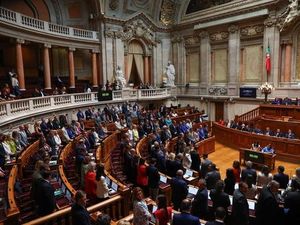Cypriot President Nikos Christodoulides has taken steps to attract interest from major energy companies, particularly those from Persian Gulf nations, to explore natural gas reserves off the southern coast of Cyprus. This announcement came during his address at an energy conference held in Nicosia, where he revealed discussions are currently underway with various unnamed companies focusing on the potential to obtain exploration licenses for some of the country’s 13 designated areas within its exclusive economic zone.
The interest from foreign energy companies is significant, especially as Cyprus continues to explore its vast natural gas potential, which has already seen preliminary findings confirmed. Notably, companies such as Italy’s Eni, France’s Total, ExxonMobil, and Chevron currently hold licenses to explore 10 blocks within Cyprus’ exclusive economic zone. Christodoulides emphasized the importance of involving more global energy giants, indicating it serves as “a vote of confidence” for the nation’s potential.
He detailed existing explorations, mentioning at least five natural gas deposits found within Cypriot waters, including three identified by the Eni-Total consortium and additional deposits recognized by ExxonMobil and Chevron. One of the most promising areas is believed to contain around 4.2 trillion cubic feet of gas. Plans are already moving forward to develop one of the Eni-Total fields, which is projected to hold around 2.5 trillion cubic feet of natural gas.
Efforts are underway beyond just gas exploration. Cyprus is also tackling energy isolation through enhancing electricity connections, as seen with the ambitious undersea cable project linking Cyprus with Greece. The 1.9 billion euros ($2.1 billion) cable project, which has garnered significant funding of approximately 657 million euros ($694 million) from the European Union, aims to provide 1,000 megawatts of electricity. Christodoulides noted the project aligns with the EU’s broader aim to achieve energy price parity among member states by 2030.
Importantly, these developments are occurring against the backdrop of global shifts toward renewable energy and energy independence. Cyprus is attempting to position itself not just as a gas supplier but as an energy hub strategically located at the crossroads of Europe and Asia. This quest is likely fueled by the EU's growing reliance on external energy sources, especially following recent geopolitical tensions.
The cyclic nature of energy exploration is not new, but involves complex negotiations layered within political and diplomatic contexts, particularly with Cyprus's divided history and the presence of its Turkish-Cypriot community laying claim to portions of the island. Amidst these factors, Christodoulides is advocating for international partnerships and ensuring Cyprus can play an integral role in future energy markets.
Overall, President Christodoulides’ recent initiatives show great promise for Cyprus’ energy future, reflecting ambitions to collaborate with major international firms and significantly boost its economic footprint through natural gas extraction and distribution.
This strategic exploration by Cypriot authorities marks another pivotal step as the nation seeks to diversify and expand its energy operations, ensuring it capitalizes fully on the numerous opportunities arising within the ever-evolving global energy market.



